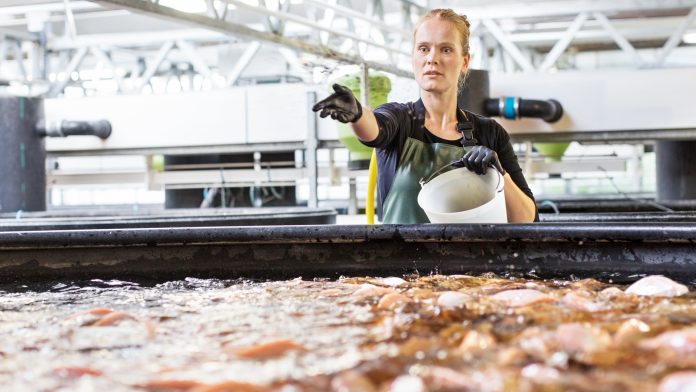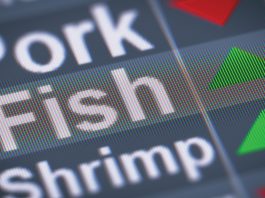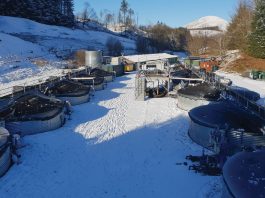As climate change threatens global food supplies, innovators look to land-based aquaculture as a solution to increasing nutrition security.
As sea temperatures peak and our soil continues to degrade, land-based aquaculture could ensure global nutrition security. Land-based aquaculture allows fish farmers to create their own environment, controlling water temperature and salinity, future-proofing this industry. In a paper published in the academic journal, Reviews in Fisheries Science & Aquaculture, qualifies that the movement towards fish-based diets can benefit public health through the production of a wide diversity of nutrient-rich seafood, and also enabling equitable access to it.
The paper, named ‘Scenarios for Global Aquaculture and its Role in Human Nutrition’, examines potential scenarios for the future of the aquaculture sector and its role in nutrition security, offering governing bodies the opportunity to create policies and educate market leaders on sustainable practices. Taking into account economic development and globalisation, the research team, led by Jessica Gephart of the University of Maryland and American University, USA, offers four contrasting scenarios for aquaculture’s future, ‘Aquatic Chicken’, ‘Aqua-Nationalism’, ‘Food Sovereignty’, and ‘Blue Internationalism’.
Possible scenarios for the future of land-based aquaculture
The Aquatic Chicken scenario suggests that aquaculture will develop increasingly intensive production systems that prioritise the reduction of cost by farming a small number of highly traded species. This method allows fish farmers to produce large volumes of low cost fish. The paper highlights that the salmon and tilapia sectors are already following similar paths.
The research defines Aqua-Nationalism as supporting enterprises to meet domestic seafood demand. While countries with mature aquaculture sectors will continue to meet some nutritional needs, it will be for a narrower range of consumers and at increased cost. Whereas the Food Sovereignty scenario sees governments support the development of small-scale aquaculture, thereby increasing access to seafood in rural areas. The research team deduced that such a scenario is likely to see overall output growth slow or even stall, which will in turn impact consumption in urban areas.
Finally, the Blue Internationalism scenario suggests that aquaculture could take advantage of globalised food systems to ensure that planetary boundaries are not exceeded. It favours local species diversity, with businesses incentivised to maintain nutrition security at a range of price points to ensure they are widely accessible.





